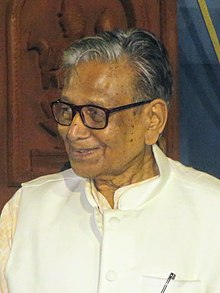Do you think whatever happens to us is for ultimate good?
It is absolutely true. Although when we say this at our normal level of communication it appears to be a truism, a kind of hackneyed slogan. But as one goes on realizing more and more the whole meaning of life, and the purpose of our living and experiencing things, one understands that it is a fact, an ultimate fact at a higher plane. But when we speak it at the ordinary level, it can be contradicted also. However, when one has gone there, and had an inkling of that culminating point, one should with clear conscience say: ‘Yes’.
Do you think the act of translating a story from one language to another is as much creative as writing the story itself?
No. In translation the role of the basic creative inspiration has not much role to play. The original writer writes out of inspiration. The translator is not expected to be inspired. In a superficial sense, he may feel he has been moved by a particular piece of work he is translating. That is not the creative inspiration. It is a love for a particular work. The translator’s craft cannot be equated with the art of the writer. But the translator’s craft is the next great requirement in literature. The worth of the work being translated depends on his capacity to understand the very quality of ethos which is there behind the original work. A good translator is well-versed not only in the languages but also in the matters of milieu, environment … and he knows how to empathize with the characters, and only through the empathy the characters can have a re-incarnation in the language in which he is translating …
